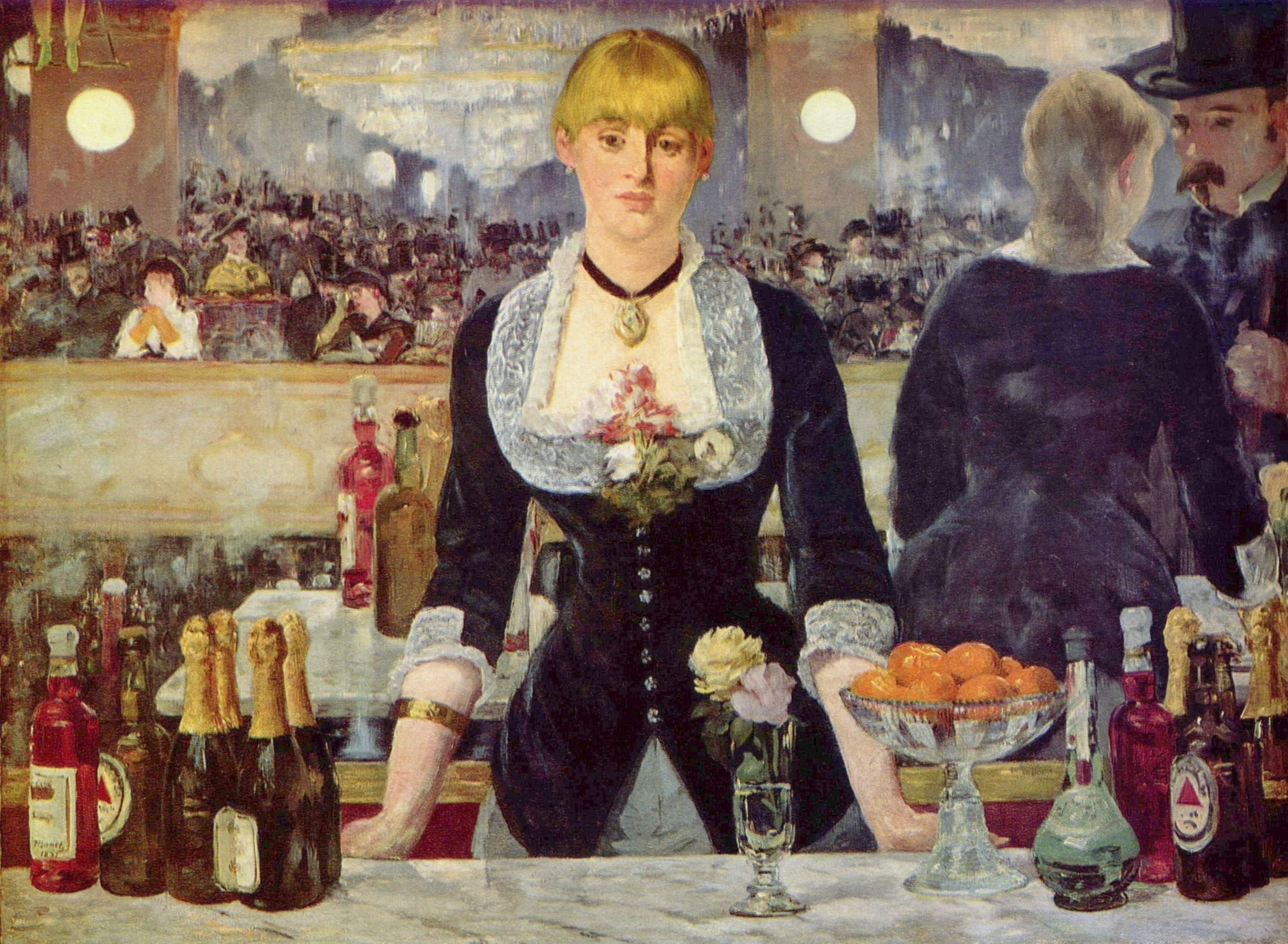
The 76th edition of the world’s most consistently noteworthy film festival has announced most of the titles that will be shown between May 16th and 27th.
There’s the Competition slate, of course, whose jury will be headed by Swedish writer-director Ruben Östlund whose semi-original, semi-derivative riff on class differences and shallow influencers “Triangle of Sadness” won the Festival’s top prize, the Palme d’Or last year.
Over 2000 submissions were received from far and wide. Head programmer and artistic director Thierry Fremaux said on April 13th that this proves that “Cannes is bursting with vitality and people everywhere on earth want to make movies.” And, by staunchly defending the communal film-going experience on the big screen (the main screens in Cannes are VERY big), Cannes continues to be a defiant powerhouse in resisting the cajoling of certain streaming services intent on crashing the Competition while, if possible, getting around French “windowing” rules that preserve French cinemas, jobs and the funding to make more movies.
When Covid made it impossible to hold the festival in 2020, programmers announced the films they WOULD have shown and made a firm decision to NOT put them online, as several other film festivals were doing during the pandemic. Why? Because in Fremaux’s view, a collection of movies people watch on streaming devices and not with others on the big screen may be entertaining, but it can’t call itself a film festival.
Lest you think Cannes is mostly an elitist gathering devoted to arthouse fare by people with unfamiliar names, it’s worth remembering that “Elvis” and “Top Gun: Maverick” both had their world premieres in Cannes last May. Until Baz Luhrman’s kinetic and touching portrait of The King unspoiled, and Tom Cruise climbed back into a you-are-there cockpit, nobody could say for sure whether a longish film about Elvis Presley or reviving the plucky character of Pete “Maverick” Mitchell played over 35 years later by the actor who created him, were good ideas.
It turns out they were.
Because the lure of the new is enticing, many are justifiably curious and excited to see the first film by Ramata-Toulaye Sy, who was born and raised in France but whose heritage is Senegal, the North of which is where her tale of thwarted young romance “Banel & Adama” is set. Fremaux says it’s a film “that is nearly experimental and a cinematic object that’s as strong as it is original.”
I’m interested in what every film has to offer, from directors “old” and new, but I’m way more excited by the “old”—in this case “Last Summer” by Catherine Breillat.
It’s generally accepted that in the arts we need to hear from more outsiders. That admirable goal is fine and dandy if we don’t keep losing track of the “outsider” voices that have been there all along, busting barriers, foisting incredibly original visions onto sometimes unsuspecting viewers.
Is there another film besides Breillat’s “Anatomy of Hell” (2004) co-starring prolific Italian porn star Rocco Siffredi alongside the exquisitely daring Amira Casar, in which one may witness a soliloquy directed at a tampon?
Breillat burst on the scene at age 17 with a then-shocking novel, A Man for the Asking, which was banned in France for readers under 18. Breillat branched out into a rather amazing filmography in which randy young women, eating disorders, sibling rivalry and even the indignities of an outsized prosthetic penis (“Sex is Comedy“) are major components. And she did that starting in 1976, taking time out to write screenplays, including for Federico Fellini (“And the Ship Sails On”).
Breillat suffered a debilitating stroke and cerebral hemorrhage in real life in 2004 but has managed to make five features after that, including “Abuse of Weakness,” starring Isabelle Huppert as her stand-in, about how Breillat’s savings were wiped out to the tune of over 600,000 euros (some sources say over 850,000) by a clever young con man. She was last in Competition in 2007 with the fetchingly complex and steamy costume drama “The Last Mistress,” starring Asia Argento.
Her new film stars Lea Drucker as a wife and mother who takes up with her husband’s teen son from a previous relationship. Breillat has often explored substantial age gaps: older men and young women but also older women and young men.
I think it’s heartening to note that “Last Summer” came about because Franco-Tunisian producer Saïd Ben Saïd sought out Breillat and encouraged her to make another film. Ben Saïd is a hands-on producer whose productions include Paul Verhoeven’s delectable “Elle,” in which a mysterious stranger rapes a businesswoman played by Isabelle Huppert and turns every table it’s possible to turn on both narrative expectations and her attacker. “Elle” made its premiere in Cannes. As did Verhoeven’s fact-inspired lesbian nun drama “Benedetta,” also backed by Ben Saïd.
Speaking of what, of late, we’ve taken to calling “nepo babies,” Chiara Mastroianni will be mistress of ceremonies for the Opening and Closing ceremonies. She is the daughter of two people who I feel comfortable saying were born to be in movies: Marcello Mastroianni and Catherine Deneuve. Gazing at Chiara’s face sometimes feels like a special effect all its own. You can recognize her mother’s features and then squint or move your head, and she looks exactly like her dad. Both parents were such outstanding genetic raw material that I can picture strands of DNA arguing over who should get top billing.
By the way, Chiara was born around the time her parents were making Jacques Demy’s “The Most Important Event Since Man Walked on the Moon,” a satirical comedy in which Mastroianni plays a man who finds himself pregnant. It’s from 1973. Chiara is “from” 1972.
Interestingly, the male pregnancy is attributed to eating too much hormone-laced chicken.
Cannes Festival president Iris Knobloch stated that movies in theaters are back, that so-called day-and-date has been scrapped—“No studio is going to continue releasing a movie in theaters and make it available for streaming the same day.” With government subsidies, not a single movie theater closed in France despite nearly a year of shuttered lockdown. France is still building cinemas. Meanwhile, in my native Chicago, the circa-1912 “400” on the city’s far North side, has announced it can no longer make a go of it. They’ve been showing movies since the Titanic sank and stayed afloat considerably longer.

The Official line-up is a judicious mix of veteran talent and relative or complete newcomers.
When Fremaux called vet Wim Wenders to say he would like to invite his 3-D format documentary “Anselm” AND fiction feature “Perfect Days”—which reportedly has something to do with men who clean public toilets in Tokyo—Wenders apparently said, “At my age, two films in Cannes the same year isn’t too shoddy.” (He was born in 1945 and won the Palm in 1984 with “Paris, Texas.”) James Cameron, of course, launched the renewed temporary craze for 3-D movies with “Avatar” (remember how renting 3-D glasses was suddenly a regular ritual whether the film warranted that treatment or not? An excellent lesson in how trends are sometimes merely that, not permanent changes). Cameron’s 3-D retooling of “Titanic” is splendid. But I don’t think I’ve ever seen a better use of 3-D technology than Wenders’ 2011 documentary “Pina” about the late German choreographer Pina Bausch and her bereft troupe endeavoring to keep her work alive. I felt swept onto the stage with the dancers.
So, Wenders’ doc about German artist Anselm Kiefer in 3-D isn’t something you’ll be able to fully enjoy on a streaming platform. Kiefer has worked in France since 1993.
English-speakers will have plenty to take in, with enticing new work from Jonathan Glazer: “The Zone of Interest” based on the novel by Martin Amis, set in Auschwitz. Glazer’s previous film, 2013’s “Under the Skin,” starring Scarlett Johansson, is one of the creepiest films I’ve ever seen. Genuinely scary stuff executed with absolute mastery and a splendid score.
Todd Haynes, who premiered his glorious documentary about the Velvet Underground in Cannes last year, is back with “May/December.” It’s apparently about a well-known American couple in which the husband is 23 years younger than his wife and their twins are about to graduate from high school. This may be the year of “Yep—there’s an age gap, what of it?”

Johnny Depp, born in 1963, plays King Louis XV in Maiwenn’s “Jeanne du Barry,” which opens the festival out of competition. Maiwenn herself, born in 1976, plays the title character, the King’s favorite mistress. History teaches us that kings, at least of yore, usually get to do pretty much what they want, and their subjects get in trouble if they object. History also teaches us to never underestimate the power of class rankings and appearances. The official trailer exudes lavishness.
It will be released in French theaters the day after it premieres, a spot on the calendar that Fremaux described as “The same day as Bruce Springsteen’s 2nd concert in Paris.”
Last year David Cronenberg pointed out, “I’m older than this Festival.” So is Italian master Marco Bellocchio, whose “Rapito” is in Competition. It’s his 8th time competing in Cannes.
Ken Loach will compete with “The Old Oak.” Fremaux says that when he telephoned Loach to invite him and his film, “He said what he always says, which is ‘Are you sure?’” Loach has often shown his socially conscious and incrementally gripping films in Cannes and is a two-time winner of the Palme. He was born in 1936, and critics wrote that his two previous films were his “last.” Guess not. And hurray for that.
The cast of Wes Anderson’s latest confection, “Asteroid City,” is mouth-watering if your mouth waters at the sight of talent. Tom Hanks, Scarlett Johansson, Tilda Swinton, and Adrian Brody will presumably accompany the film. “To describe this film by Wes Anderson,” Fremaux joshed, “I’ll say it’s a Wes Anderson film.”
I am excited to see “Four Daughters” by Kaouther Ben Hania. I met her when her terrific “The Man Who Sold His Skin” (as much of a critical riff on the international art market as is Ostlund’s “The Square” but with an intensely pertinent political refugee subtext) had been doing interviews in Paris with international journalists for several days and said, bemused, “Journalists keep asking me what it’s like to be a woman director in Tunisia. I can only answer what it’s like to be ME, but we have lots of women directors where I come from. It’s not particularly unusual.”
Mongolia is showing a film for the first time, “If Only I Could Hibernate.” “We received lots of submissions from sub-Saharan Africa,” says Fremaux,” quite a few of which were made by women.”
Speaking of women filmmakers, this year is the 150th anniversary of the birth of Alice Guy. It’s generally agreed that the first motion pictures—short, silent, and in Black & White—were made in 1895. Guy started directing—and went on to make hundreds of short films on a wide range of topics—in 1896.
According to the tally made by the founder of the annual Prix Alice Guy, which goes to the best film of the year directed by a woman, 98 French films released in French cinemas in 2022 were directed or co-directed by women. I hope you’ll seek out the most recent winner, “Revoir Paris” (Paris Memories) by Alice Winocour, starring the omnipresent Virginie Efira as a woman who survives a terrorist attack but can’t quite piece together what really happened to her. The film premiered in the Cannes sidebar “Directors Fortnight.”

For now, Martin Scorsese’s “Killers of the Flower Moon” is slated for an official Out of Competition slot, which is also where you’ll find “Indiana Jones and the Dial of Destiny” by James Mangold. The festival will formally tribute Harrison Ford, including footage of a very young Ford shot by Agnes Varda and Jacques Demy when he was shooting “Model Shop” in 1969.
An Out of Competition slot may sound like a step down from the big time but it can be a terrific launch pad. Dominik Moll’s devastating police procedural “The Night of the 12th” premiered there last year and went on to win multiple Cesars, including Best Picture.
A year ago, Russia’s invasion of Ukraine was still startling, almost unbelievable in modern Europe. Ukrainian president Volodymyr Zelenskyy, marshaling his proven flair for bespoke showmanship, made an incredibly well-composed surprise speech, via video screen, during the Opening Ceremony. And most pundits debated whether he “should” have been permitted to speak in that setting rather than what he actually said.
So far, Cannes remains refreshing in that it stands up for art and creativity in a dicey world. One senses that nobody on the programming side has time to tremble over so-called political correctness or cancel culture. What matters is the films themselves.




